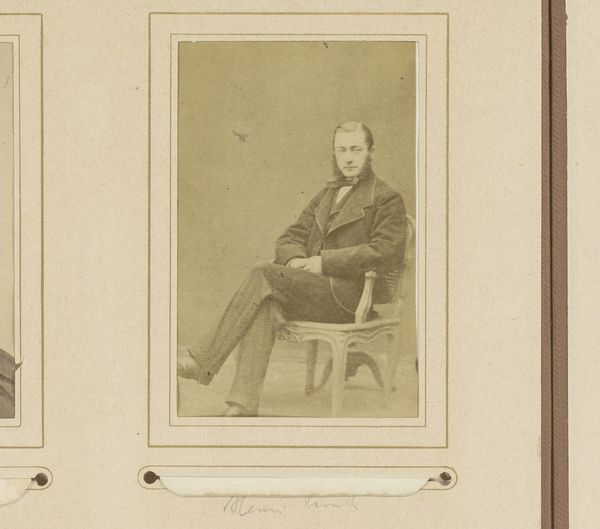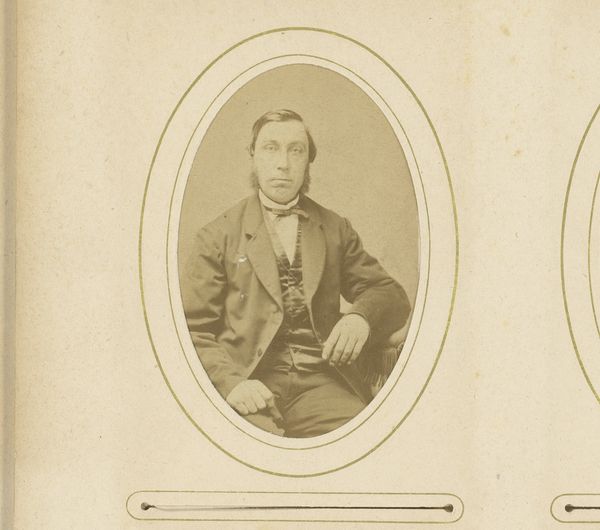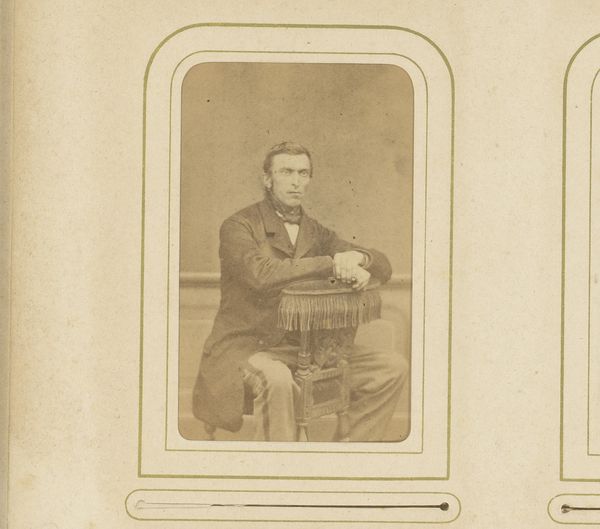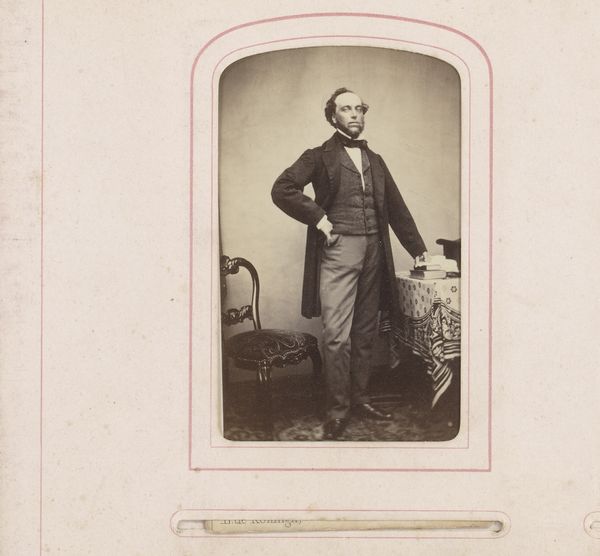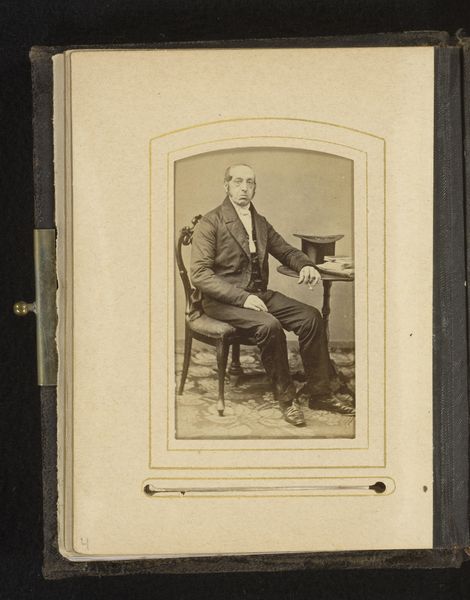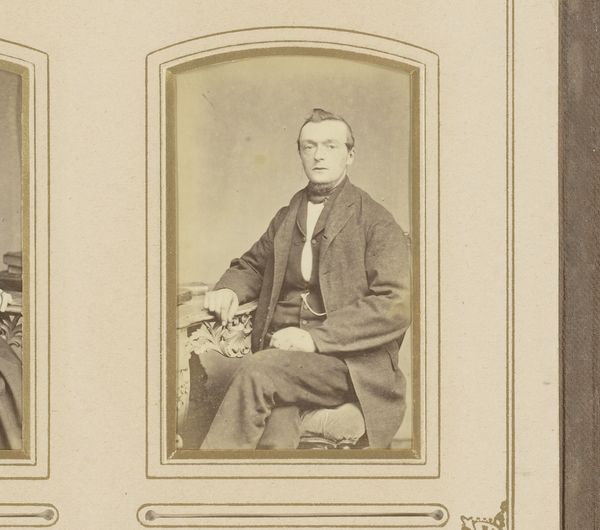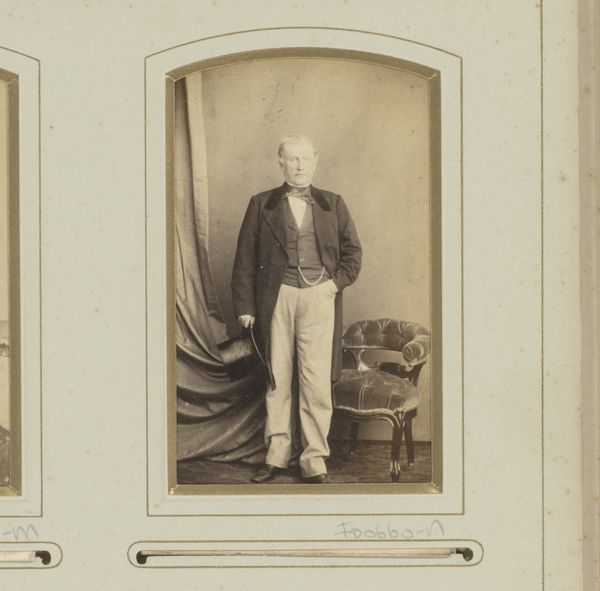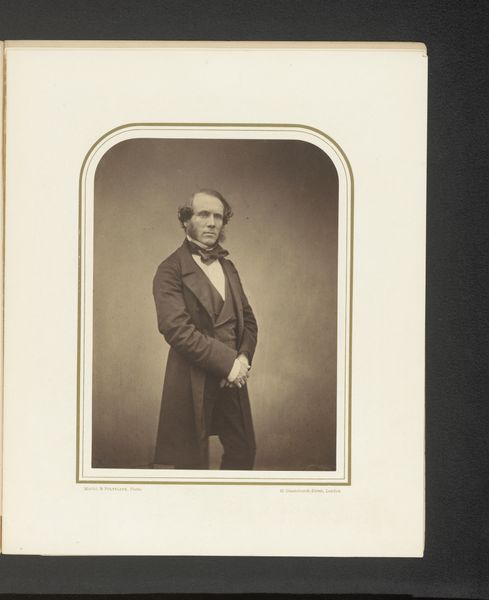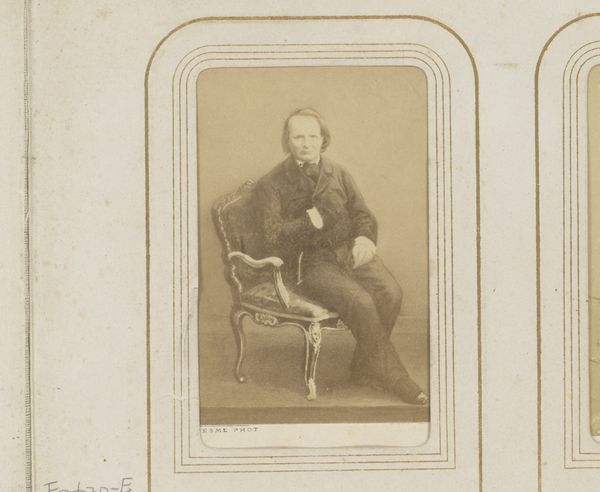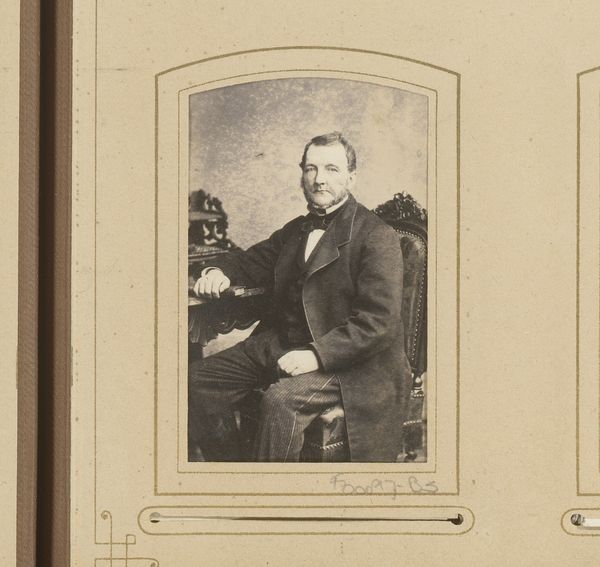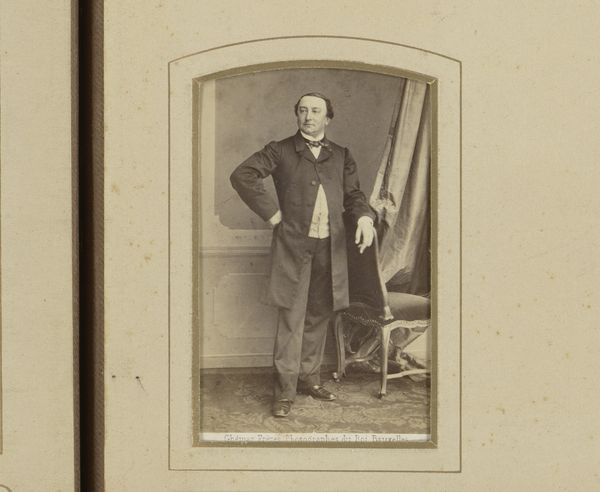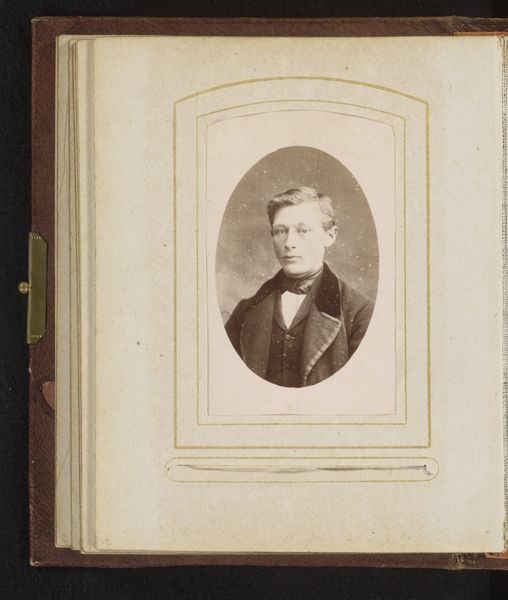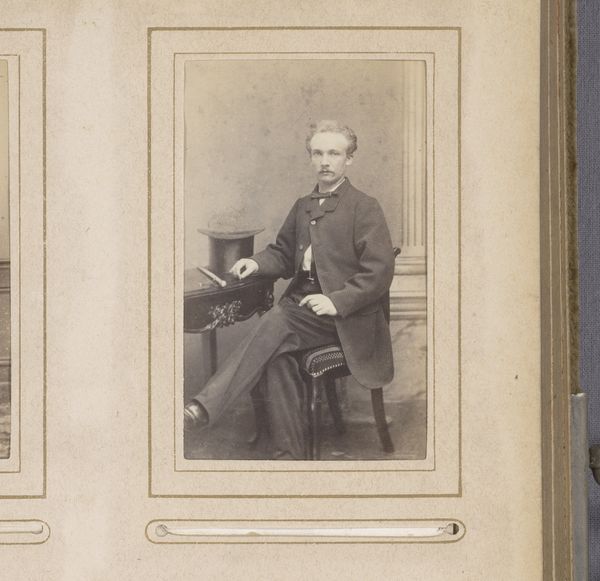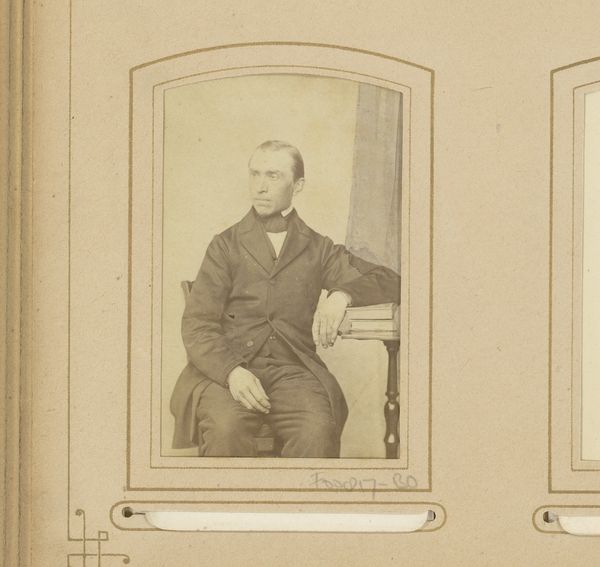
daguerreotype, photography
#
portrait
#
daguerreotype
#
photography
#
historical photography
#
19th century
#
realism
Dimensions: height 81 mm, width 52 mm
Copyright: Rijks Museum: Open Domain
This is an albumen print of a seated man, made by Albert Greiner sometime in the mid-19th century. This photographic process, popular during the Victorian era, involved coating paper with egg white and silver nitrate, then exposing it to light through a negative. The result is a highly detailed image, though somewhat prone to fading and discoloration over time. The albumen print offered a relatively affordable way to produce portraits, and they were extremely popular among the rising middle classes. It democratized image-making in a way that painting never could. In this context, the sitter’s carefully chosen attire—his patterned suit and elaborate bow tie—speaks to his aspirations and social standing. The slight imperfections and delicate tones of the albumen print add a layer of nostalgia, reminding us of the human labor involved in even the most "mechanical" forms of reproduction. It's a beautiful example of how a specific material process shaped our understanding of portraiture and social identity.
Comments
No comments
Be the first to comment and join the conversation on the ultimate creative platform.
